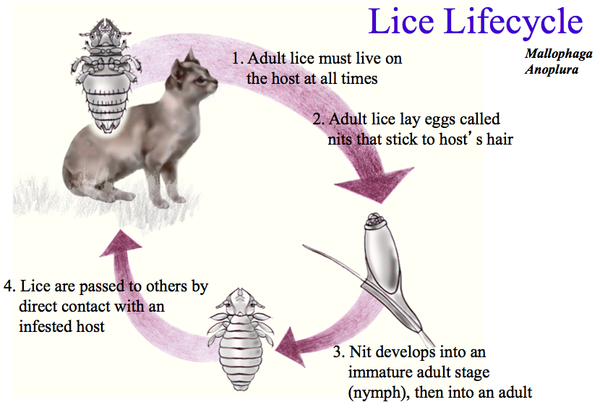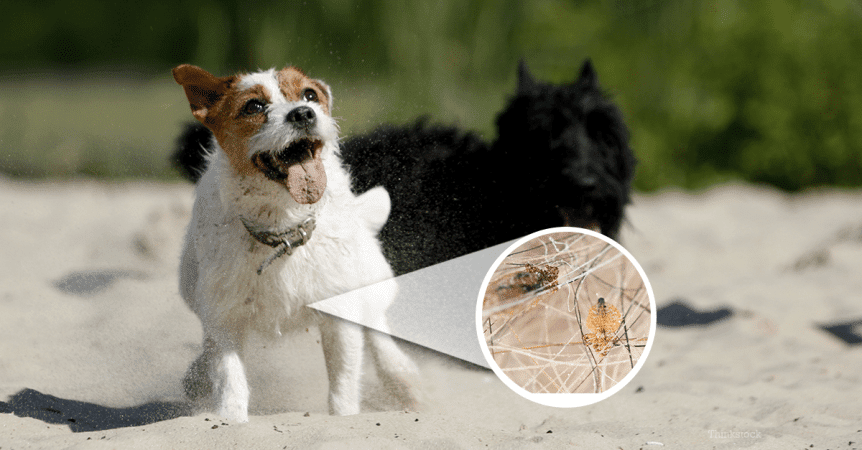By Dr. Liza Curman
Lice are a parasite that can infest both dogs and cats. This infestation results in a condition we call Pedunculosis.
There are two types of louse that affect dogs which are differentiated by their feeding habits, namely ‘chewing/biting lice’ (Trichodectes canis) and sucking lice (Linognathus setosus).

The species of lice that infects cats is (Felicola subrostrata) which is a chewing louse. Infestation with either causes excessive itchiness and scratching, a dry scruffy-looking coat, hair loss, most often around the ears, neck, shoulders, groin, and rectal area.
Animals can also suffer from anaemia due to blood loss from severe infestation with sucking lice which can be particularly severe in puppies, small dogs, the senior pet & the immunocompromised pet.
As with most parasitic skin problems it is vital to establish the cause and identify the culprit! Visually observing lice or their nits (eggs) in the hair aids diagnosis. Adult lice are flat, six-legged insects with no wings. Nits can be seen attached to the individual hair shafts and appear as small white dots and here at Shannon or Clare street vets we can take a skin scrape and hair pluck from your pet and view it under a microscope to definitively identify the parasite.
Having made a diagnosis we can then treat your pet with a proven product. This is often a spot-on application or a wash. In severe cases and where there is an underlying health problem, hospitalisation and further treatment may be necessary. Remember if your pet has lice it maybe a sign of an underlying un diagnosed condition.

It should be noted that lice can be passed directly from one animal to another through direct contact or through contact with contaminated objects, such as grooming utensils or bedding so in multi pet households siblings and the environment will often need to be treated also. To put all you cringing readers at ease, Lice are Host Specific! meaning they don’t cross over species e.g. from cats to dogs, or from our pets to us!! So stop scratching and bring your itchy pet down to us so we can diagnose and treat the cause.

